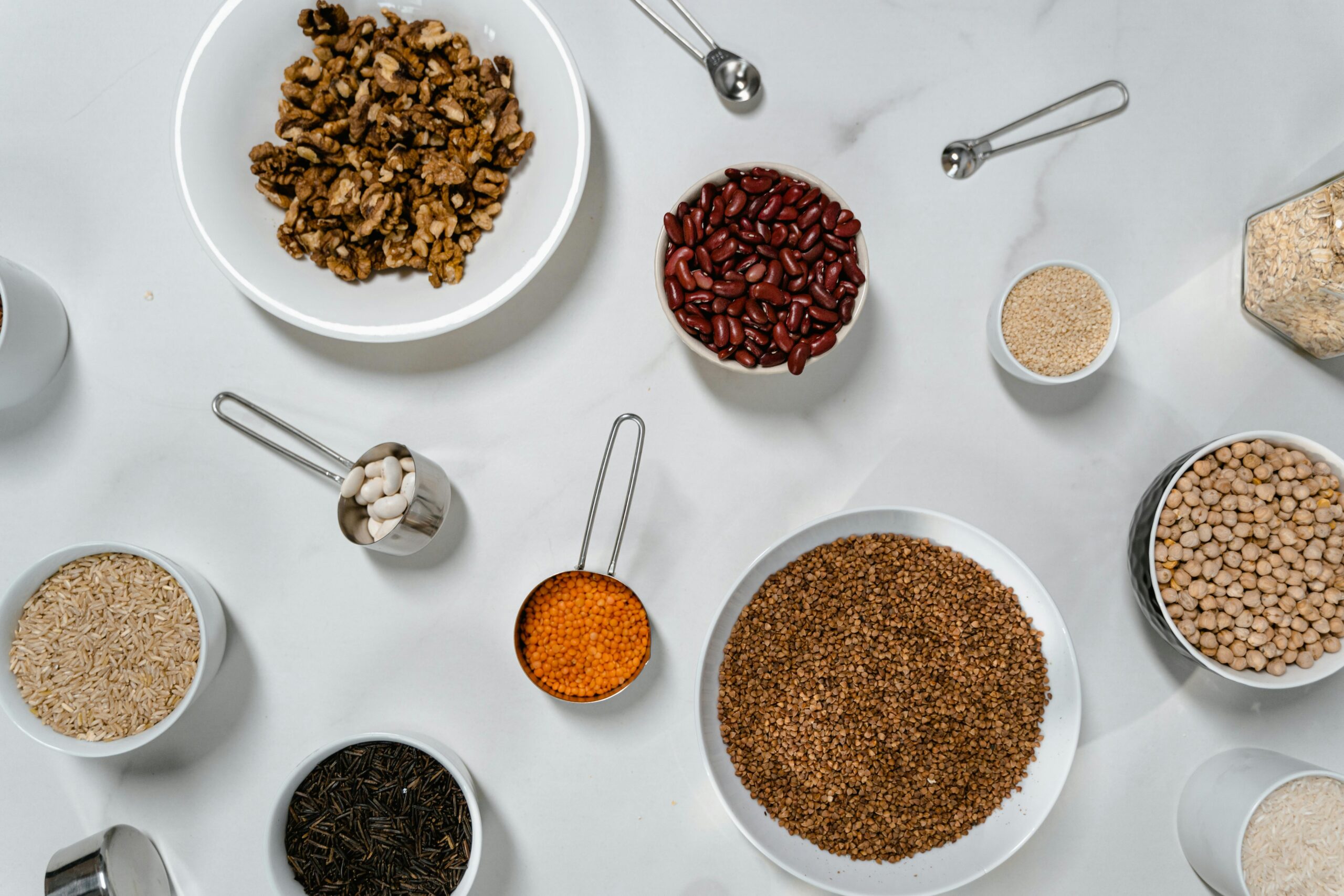In today’s health-conscious world, finding quality protein sources has become a top priority for many people. While animal proteins often steal the spotlight, nuts and seeds are emerging as nutritional superstars that deliver impressive amounts of protein along with essential nutrients your body craves.
Why Nuts and Seeds Are Essential for Your Protein Goals
When it comes to plant-based nutrition, nuts and seeds offer an unbeatable combination of high-quality protein, healthy fats, fiber, and micronutrients. These natural foods can help you meet your daily requirements while supporting overall health and wellness.
This essential protein plays a crucial role in building muscle, maintaining healthy skin and bones, transporting oxygen throughout your body, and supporting hormone balance. The 2020-2025 Dietary Guidelines for Americans recommend getting 10-35% of your daily calories from protein, making nuts and seeds an excellent addition to any balanced diet.
The Top 10 Nuts and Seeds Ranked by Protein Content
1. Hemp Seeds: The Plant-Based Protein Champion
Protein Content: 9 grams per 3 tablespoons (30g)
Hemp seeds top our list as the ultimate protein powerhouse among nuts and seeds. These mild-tasting seeds pack an impressive 9 grams of protein in just 3 tablespoons, plus anti-inflammatory omega-3 fatty acids. Despite coming from the same plant family as cannabis, hemp seeds are completely legal and incredibly nutritious.
2. Pumpkin Seeds: The Sleep-Supporting Source
Content: 8 grams per 1 ounce (28g)
Pumpkin seeds deliver 8 grams per ounce while offering unique sleep benefits. Rich in magnesium and tryptophan, these flavorful seeds may help you fall asleep faster and wake up more rested when enjoyed close to bedtime.
3. Peanuts: The Heart-Healthy Legume
Protein Content: 7 grams per 1 ounce (28g)
Though technically a legume, peanuts earn their place among top protein-rich nuts and seeds. Research published in Food Science and Human Wellness shows peanuts can help optimize cholesterol, triglycerides, and blood pressure levels, making them both nutritious and heart-protective.
4. Almonds: The Heart-Smart Choice
Content: 6 grams per 1 ounce (28g)
Almonds provide 6 grams per ounce alongside heart-healthy fats and vitamin E. Whether eaten raw, sliced on salads, or used as almond flour in baking, these versatile tree nuts support cardiovascular health.
5. Sunflower Seeds: The Nutrient-Dense Snack
Content: 6 grams per 1 ounce (28g)
These tiny but mighty seeds pack 6 grams per ounce plus essential vitamins and minerals. Sunflower seeds are perfect for trail mixes, nutrition bars, or as a crunchy salad topping.
6. Pistachios: The Eye-Health Protector
Content: 6 grams per 1 ounce (28g)
Pistachios offer 6 grams while standing out for their high levels of antioxidants that protect against macular degeneration and harmful blue light effects on the eyes.
7. Cashews: The Antioxidant Booster
Content: 5 grams per 1 ounce (28g)
Cashews provide 5 grams per ounce along with beneficial fiber and healthy fats. Like other tree nuts, cashews contain significant antioxidants that protect cells from harmful substances.
8. Flaxseeds: The Fiber-Rich Source
Content: 5 grams per 1 ounce (28g)
Flaxseeds deliver 5 grams per ounce plus nearly 8 grams of fiber. These versatile seeds are perfect for smoothies, baked goods, and overnight oats.
9. Hazelnuts: The Sweet Winter Nut
Content: 4 grams per 1 ounce (28g)
Also known as filberts, hazelnuts provide 4 grams per ounce with a naturally sweet flavor. They’re excellent roasted and added to salads or used in seasonal dishes.
10. Walnuts: The Brain-Boosting Nut
Content: 4 grams per 1 ounce (28g)
Walnuts round out our list with 4 grams per ounce. Research published in the journal Nutrients shows the omega-3 fatty acids in walnuts have antioxidant and anti-inflammatory effects that may support cognitive function.
Beyond Macronutrients: The Complete Nutritional Benefits
While the macronutrient content is impressive, nuts and seeds offer so much more:
- Healthy Fats: Essential omega-3 and omega-6 fatty acids support heart health and reduce inflammation
- Fiber: Promotes digestive health and helps maintain stable blood sugar levels
- Vitamins and Minerals: Including vitamin E, magnesium, zinc, and selenium as detailed by the National Institutes of Health
- Antioxidants: Protect cells from oxidative stress and support immune function
How to Incorporate More Plant-Based Options Into Your Diet
Adding these natural foods to your daily meals is simple and delicious:
- Breakfast: Sprinkle hemp seeds or flaxseeds on yogurt, oatmeal, or smoothie bowls
- Snacks: Enjoy a handful of mixed varieties or create your own trail mix
- Salads: Top greens with pumpkin seeds, sunflower seeds, or chopped almonds
- Baking: Use almond flour or add chopped varieties to muffins and bread
- Main Dishes: Crust fish or chicken with crushed tree nuts for added nutrition and flavor
Maximizing Your Intake with Smart Choices
To optimize your intake from these plant foods:
- Variety is Key: Rotate different types to ensure a wide range of amino acids and nutrients
- Portion Control: Stick to recommended serving sizes (typically 1 ounce) to manage calories
- Timing Matters: Include these foods with meals to enhance satiety and nutrient absorption
- Storage Tips: Keep them fresh in airtight containers to maintain nutritional quality
Smart Shopping and Preparation Tips
When selecting these plant-based options:
- Choose raw or dry-roasted varieties without added oils or salt
- Buy in smaller quantities to ensure freshness
- Store in cool, dry places or refrigerate for longer shelf life
- Consider soaking certain varieties to improve digestibility
Meeting Your Daily Requirements
A balanced approach to meeting your daily needs might include:
- Morning: 1 tablespoon of hemp seeds in your smoothie (3g)
- Afternoon: 1 ounce of almonds as a snack (6g)
- Evening: 2 tablespoons of pumpkin seeds on your salad (5g)
This simple combination provides 14 grams from plant sources alone, supporting your overall nutritional goals.
The Bottom Line on Plant-Based Nutrition
Nuts and seeds are nutritional powerhouses that deserve a place in everyone’s diet. With protein content ranging from 4-9 grams per serving, they’re excellent plant-based alternatives that support muscle health, provide sustained energy, and deliver essential nutrients your body needs.
Whether you’re following a plant-based diet, looking to diversify your sources, or simply want to improve your overall nutrition, incorporating a variety of these natural foods into your daily meals is a simple and effective strategy. From hemp seeds’ impressive content to walnuts’ brain-boosting benefits, these foods prove that good things really do come in small packages.
For more detailed nutritional information and daily recommendations, consult resources like the Academy of Nutrition and Dietetics or speak with a registered dietitian who can provide personalized guidance based on your individual health needs and goals.


1 thought on “10 Best Nuts and Seeds for Protein: The Ultimate Plant-Based Powerhouse Guide”